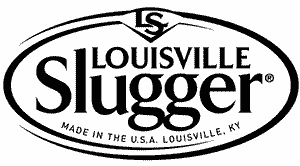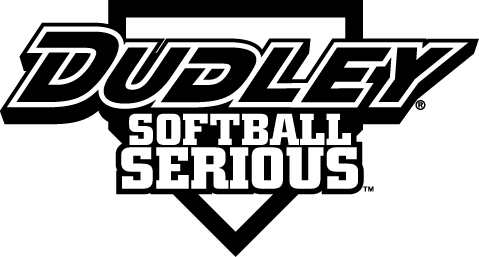Message board »Message Board home »Sign-in or register to get started
Online now: 3 members: Ferg44, Mos, TABLE SETTER 11; 97 anonymousDiscussion: Interference/Obstruction During a Run Down
| Posted | Discussion |
| Aug. 25, 2017 Steve in Tucson Men's 70 22 posts | Interference/Obstruction During a Run Down I am the Head Umpire for our local association and was involved in a situation where a question came up whether a runner should be called safe because of defensive interference. I was on the defensive team and part of the run down between first and second base. The play in question involved a runner bumping into a defensive player during the run down before being tagged out - neither interference nor obstruction was called at the time of the contact. After the play, the offensive team appealed to the base umpire that the defensive player interfered with the runner and he should be called safe. After the base umpire discussed the play with the plate umpire, the runner was called safe and returned to first base as the base umpire judged that was the direction he was going when he bumped into the defensive player. Because he waited to make the call, a player scored from third base during the run down. As head umpire, I council the umpiring crew on the correct way to call plays. In this case, my concern was that the base umpire was incorrect in not calling interference immediately and stopping the play if he judged it to be interference. An immediate call would have left a runner on third and the runner in the run down safe on first. I'm also concerned that an appeal shouldn't have been allowed as the interference was not called immediately leaving me to believe the base umpire saw it as incidental contact rather than interference. With no immediate interference call, the runner in the run down was out, because he was tagged out, and the runner from third safe at home scoring on the play. To me, this was a matter of timing and interference shouldn't have been called after the fact. I'd appreciate any thoughts and comments on this situation as I want to make sure my umpires and I are on the same page and in line with SSUSA rules and the application of those rules. Thank you. |
| Aug. 25, 2017 B.J. 1107 posts | Steve... Im confused you say that the defensive player was in the way of the runner going back to the bag so I assume he didn't have possession of the ball...then you say the umpire after the play called interference on the defensive player... if in fact the defense was in his way "obstruction" should have been the call (not interference) and it would be a delayed dead ball situation ... the umpire "immediately" should have stuck out his left arm and also given a verbal call at the time of the obstruction... when the runner was tagged out the umpire should give a safe call and award him the proper base that in his judgement he would have reached...as far as the run scoring the umpires should determine if the run would have scored if they had done the proper mechanics of the play.. on the appeal after the play... I always say you get what you pay for... I find volunteer umpires have a hard time with calls like this because of inexperience and they sometimes just don't know what to call until after they talk about the play......bottom line they tried to get the correct call after the play... |
| Aug. 25, 2017 B.J. 1107 posts | Steve... also read 8.4(10) • WHEN RUNNERS ARE ENTITLED TO ADVANCE... and the NOTE: of EFFECT... EFFECT: When obstruction occurs, the umpire shall call "obstruction" and give a delayed dead ball signal for obstruction. NOTE: Failure of the umpire to call obstruction DOES NOT negate the obstruction |
| Aug. 28, 2017 stick8 1992 posts | Steve in Tucson, two obervations up front. 1)it's good the two umps got together and discussed. Generally speaking, players appreciate umpires who make the effort to get it right. 2)as BJ correctly stated if the defense is blocking a runner from going to a base that's obstruction. Obstruction has to be called right away with the ump signals delayed dead ball with left arm out. Tell your umpires two rules of thumb. Whether its intentional or unintentional: 1)a defensive player cannot obstruct a baserunner from advancing to the next base-- 2)a baserunner cannot interfere with a defensive player attempting to make a play on the ball. These are strictly judgement calls. Can you describe what happened on the play? |
| Aug. 28, 2017 Steve in Tucson Men's 70 22 posts | Thank you all for your clarification. I did know that it should have been defensive OBSTRUCTION, I just misspoke. The umpire had a chance to call offensive interference because the runner did a bit of a "chicken wing" when he ran into the defensive player but it wasn't flagrant and didn't impact the play. Saying that, though, BJ has it right as the defensive player had already released the ball and was no longer a principal in the run down. Therefore he did obstruct the runner from continuing to advance, in this case, back to first. I also agree it's difficult for volunteer umpires to keep up with all of the details of the job. From the advice and discussions above, the umpires did it right by discussing the play and made the correct call. The "DELAYED OBSTRUCTION" call isn't something they do very often - in fact, it's the first time it has come up I our association's play. Stick8, with all due respect, I believe the initial description did describe what happened and, yes, I appreciate your comments and agree it's a judgement call. I do appreciate the advice and clarification on the issue of delayed obstruction. In this case, the umpires did that, just not with a outstretched arm and verbal obstruction call at the time of the obstruction. I'll certainly take all of these comments to heart and advise my crew on how to make calls like this in the future. Hopefully, this experience will make all of us better at what we do on the field. |
| Nov. 5, 2017 Umpire35 2 posts | Guys please remember obstruction does not mean the runner gets the base he was going back to if in the umpires judgement the runner would have made the next base he could have been awarded 2nd base and all other runner awarded the bases they would have made had there been no obstruction. PS once the obstructed runner is put out prior to reaching the bsee they would have made the ball becomes dead and bases awarded. |
| Nov. 5, 2017 stick8 1992 posts | Situation: No one on, no one out. Player A (batter) gets a base hit. Player A decides he going to try for 2 but runs into the first baseman and falls down while the first baseman is standing watching the throw come in from the outfield. Player A gets up and tries to scamper back to first. As the throw comes in to second alert pitcher runs behind the runner to first. Player A is tagged out after the second baseman relays the ball back to first. Is player A out? Or is this interference on the first baseman? You make the call...... |
| Nov. 5, 2017 B.J. 1107 posts | Stick.. 2 things.. no he is not out and 2nd the call would not be interference if it was on the 1st baseman, the call would be obstruction... as with all obstruction calls it becomes a delayed dead ball until the end of the play, which resulted in him being tagged out returning to 1st base... now since he was obstructed the umpire has to determine if he believes the runner would have made 2nd safely if so award the runner 2nd base... if not place him on 1st base |
| Nov. 5, 2017 stick8 1992 posts | BJ, you are correct, obstruction is the right call. And yes it is a judgement call of the umpire after the delayed dead ball signal. |
| Nov. 8, 2017 HAT MAN Men's 50 229 posts | I would also add the runner in both situations would initially be called out based on the actual play(being tagged) then during dead ball time out the umpire would advise " we have obstruction on the @#$% the runner is safe" I get part of sticks scenario played out often and the runner goes back to first safely but wants to be awarded second. He/she must advance to the next bag to get awarded said bag. Side note want to get out of a routine double play when there is one out...... Runner on first batter hits routine ball to ss have the runner on first hook his leg around first baseman and fall to assure umpire sees the fall then run to second. He will call obstruction 8 out of 10 times. Inning continues... lol |
| Nov. 8, 2017 stick8 1992 posts | Hat Man you are correct with regard to a runner must make an attempt to advance to the next base to be awarded that base. That's the rule for usssa men's ball. The other associations I'm not certain of. As BJ correctly pointed out there is no specific mention of this in the ssusa rule book, at least that I've seen. Thus in senior ball if the umpire determines obstruction occurred he gives the delayed dead ball signal and lets the play run out. Then, as the scenario is described, he makes the call and makes a judgement if the batter runner could have made it to second or not and awards him the proper base. Interesting scenario you put up! I could see runners getting away with that in a one man system but not so much in a two man system. |
| Nov. 8, 2017 B.J. 1107 posts | HATMAN/Stick8.. in SSUSA a obstructed runner does not have to actually make an attempt to go to the next bag.. say the B/R is rounding 1st and is obstructed by the 1st baseman if he stops afer being obstructed and goes back to 1st when the play is complete the umpire should award the runner 2nd base or whatever base in his judgement he would have made safely.. the actual attempt of the runner was made when he rounded the bag |
| Nov. 8, 2017 jfsully 82 posts | to add a wrinkle (happened today) .... runner in rundown between second and third ... third baseman goes towards runner and when about 3 feet away from him, tosses ball to shortstop who is between the runner and second base(silly play). .... as the third baseball tosses the ball, the runner stops, turns and runs into him ..... (the third baseman had no time to get out of way). Technically the runner should be safe because of obstruction But? |
| Nov. 9, 2017 B.J. 1107 posts | what is the But for? smart play by the runner B. A fielder who is not in possession of the ball, in the act of fielding a batted ball, nor about to receive a thrown ball, who impedes the progress of a runner or batter-runner who is legally running bases. |
| Nov. 11, 2017 jfsully 82 posts | In the umpire section it states: Base Running A runner must make every effort to avoid collisions. If in the umpire's judgment the runner misses a base to avoid a collision, they may be declared safe. If in the umpire's judgment the runner fails to avoid a collision, they may be declared out. If the runner (even though a smart play in baseball) intentionally runs into another player that certainly is NOT avoiding a collision. It is intentionally CAUSING a collision |
| Nov. 11, 2017 B.J. 1107 posts | jfsully... you are taking the rule out of context.. the interference rule is on a baserunner that interferes with a fielder attempting to make a play... in your scenario the 3rd baseman throws the ball to the SS... once he releases the ball he is no longer involved in the play and must vacate the base path so the runner can advance, which he failed to do so |
| Nov. 11, 2017 B.J. 1107 posts | and to add to that, in your scenario the runner was obstructed when he turned to go to 3rd so he should be awarded 3rd base... lets say the runner in a run down was actually going back to 2nd base when obstructed the award would be to still advance him to 3rd in SSUSA |
| Nov. 11, 2017 stever Men's 70 99 posts | You might add that just because a runner runs into a fielder does not necessary constitute obstruction. For example, a batter gets a clean hit to center field. The fielder is playing shallow and get the ball back in quickly. The batter-runner rounds first and runs into the first baseman. There was no realistic chance of him going to second because the ball is already on its way back in when he runs into the first baseman. In that case, it is incidental contact and not obstruction. |
| Nov. 12, 2017 B.J. 1107 posts | stever.. anytime that a runner runs into a fielder that is not in possession of or attempting to field a ball the umpire should always call obstruction this alleviates any crazy things happening during the rest of the play as in a snap throw to 1st base and having the runner tagged out returning to the bag... then as you stated if he had no realistic chance of making 2nd then you would keep him at 1st |
| Nov. 12, 2017 stever Men's 70 99 posts | B.J. Agreed. I was trying to point out that this type of contact did not entitle the base runner to advance to 2nd just because he was headed in that direction when the play occurred (regardless of the association). |














